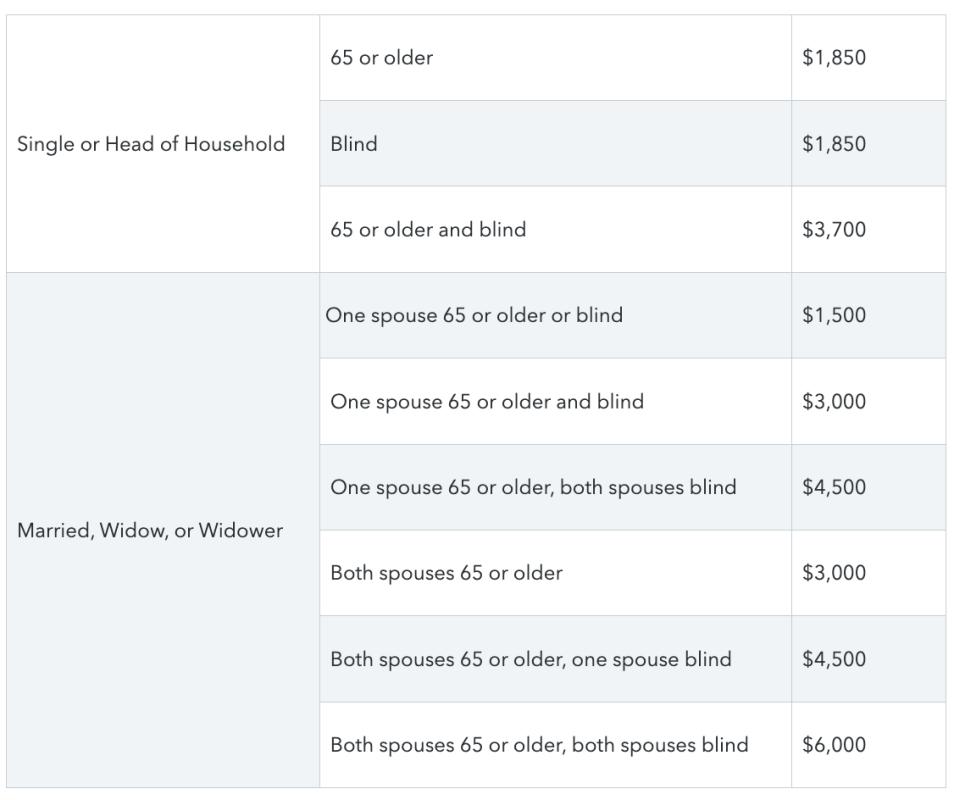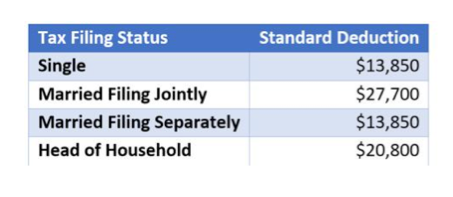The role the FEIE Standard Deduction plays in long-term expat tax planning
Wiki Article
The Foreign Earned Earnings Exemption Explained: A Guide to Enhancing Your Common Deduction
The Foreign Earned Revenue Exemption (FEIE) is a vital tax obligation provision for U.S. residents and resident aliens living abroad. It permits eligible migrants to omit a substantial portion of their foreign-earned income from federal taxes. Understanding the subtleties of FEIE can lead to considerable tax obligation savings. Many people neglect important details that might influence their eligibility and advantages. Exploring these aspects might disclose chances for improved tax obligation end results.Recognizing the Foreign Earned Revenue Exclusion
Although lots of expatriates look for chances abroad, understanding the Foreign Earned Income Exclusion (FEIE) is necessary for handling their tax obligation responsibilities. This stipulation allows U.S. residents and resident aliens living overseas to exclude a particular quantity of their made income from federal taxes. The FEIE was established to minimize the tax problem on individuals who stay outside the USA, recognizing the special financial challenges they may deal with.
Qualification Needs for FEIE

How to Declare the FEIE
To successfully declare the Foreign Earned Revenue Exclusion (FEIE), taxpayers have to first confirm their qualification based upon particular standards - FEIE Standard Deduction. The procedure involves a number of steps, consisting of filing the ideal kinds and offering needed documentation. Recognizing these treatments and requirements is vital for maximizing tax obligation advantages while living abroadEligibility Requirements
Qualification for the Foreign Earned Income Exclusion (FEIE) pivots on meeting certain criteria set by the IRS. To certify, people must be united state people or resident aliens who make income while working abroad. They need to develop a foreign tax obligation home, which means their major business is outside the USA. Furthermore, applicants must satisfy either the Authentic Home Examination or the Physical Presence Test. The Authentic House Test needs that a taxpayer resides in a foreign country for an entire tax obligation year, while the Physical Presence Examination requires spending at least 330 complete days in a foreign nation during a 12-month period. Meeting these demands is essential for claiming the FEIE.Filing Process Steps
How can one effectively browse the procedure of claiming the Foreign Earned Income Exclusion (FEIE)? People need to identify their eligibility based on the physical presence examination or the bona fide house examination. When verified, they need to finish IRS Form 2555, which information international revenue and residency. This type needs to be affixed to their yearly income tax return, usually Form 1040. It is essential to accurately report all international made revenue and assurance conformity with the internal revenue service guidelines. Furthermore, taxpayers must preserve correct documentation, such as international income tax return and proof of residency. By following these steps, people can effectively claim the FEIE and possibly decrease their taxable income significantly, improving their general financial position.Computing Your Foreign Earned Earnings Exemption
While lots of migrants look for to maximize their monetary advantages abroad, recognizing the computation of the Foreign Earned Income Exemption is vital for exact tax reporting. The Foreign Earned Income Exemption permits qualifying people to exclude a specific quantity of their international earnings from united state tax, which is readjusted each year for rising cost of living. To compute this exclusion, expatriates should determine their complete foreign earned income, which normally consists of incomes, wages, and professional charges gained while living in a foreign country.Next off, they should finish internal revenue service Form 2555, supplying information about their foreign residency and job condition. FEIE Standard Deduction. It is necessary to meet either the bona fide home examination or the physical existence examination to qualify for the exemption. As soon as these factors are established, the optimum allowable exclusion amount is applied, lowering the individual's taxable earnings considerably. Precise calculations can result in significant tax obligation cost savings for migrants living and working abroad
The Impact of FEIE on Other Tax Obligation Benefits
The Foreign Earned Earnings Exemption (FEIE) can influence a person's eligibility for sure tax obligation benefits, consisting of the basic reduction. By omitting foreign made income, taxpayers may discover their adjusted gross earnings impacted, which consequently can affect their certification look at this now for various tax obligation credit reports. Comprehending these interactions is important for optimizing tax obligation outcomes while living abroad.Communication With Criterion Deduction
When individuals get the Foreign Earned Income Exemption (FEIE), their qualification for the typical reduction might be impacted, potentially changing their overall tax liability. The FEIE permits taxpayers to omit a specific amount of gained income from united state tax, which can bring about a reduced gross income. Because of this, if the left out revenue goes beyond the standard reduction, it can decrease the advantage of declaring that deduction. Furthermore, taxpayers who use the FEIE may find that their capacity to detail deductions is likewise influenced, as particular expenditures might be impacted by the exemption. Comprehending this communication is vital for expatriates to maximize their tax obligation advantages while making certain compliance with united state tax legislationsQualification for Tax Obligation Credit Histories
Steering via the intricacies of tax credit scores can be challenging for expatriates, specifically considering that the Foreign Earned Income Exemption (FEIE) can substantially influence eligibility for these benefits. The FEIE enables eligible people to exclude a substantial portion of their foreign revenues from U.S. tax, yet this exemption can likewise affect access to numerous tax debts. Taxpayers that make use of the FEIE may locate themselves ineligible for credit histories like the Earned Revenue Tax Credit Report (EITC), as these credits generally need taxable income. Furthermore, the exemption might restrict the capability to declare specific deductions or credit histories connected with dependents. As a result, recognizing the interaction between the FEIE and readily available tax obligation credit scores is necessary for migrants intending to optimize their tax obligation scenario.Common Errors to Prevent When Asserting FEIE
Commonly, expatriates encounter numerous challenges while asserting the Foreign Earned Revenue Exclusion (FEIE), which can bring about pricey errors or missed opportunities. One constant blunder is falling short to fulfill the physical presence or authentic house examination, which is essential for eligibility. Furthermore, migrants usually overlook the requirement to file Form 2555 properly, causing incorrect or insufficient submissions.One more typical mistake includes inaccurately calculating foreign made revenue, as many do not represent all pertinent income resources. Some migrants wrongly presume they can omit all their earnings, uninformed of the restrictions on the exemption quantity. Furthermore, disregarding to keep appropriate documents, such as traveling dates and residency standing, can threaten an insurance claim. Ultimately, misunderstanding the effects of the FEIE on various other tax obligation credit scores may result in unintentional tax obligations. Recognition of these challenges can assist in a smoother asserting procedure and take full advantage of prospective benefits.
Resources for Expats Navigating U.S. Taxes
Steering U.S. tax obligations can be testing for expatriates, particularly after coming across risks in asserting the Foreign Earned Revenue Exemption (FEIE) To aid navigate these complexities, a selection of sources are readily available. The IRS internet site provides comprehensive information on tax regulations, frequently asked questions, and forms specifically customized for migrants. In addition, companies like the American Citizens Abroad (ACA) and the Expat Tax Professionals offer have a peek here support and support to ensure conformity with tax obligation regulations.On-line forums and neighborhoods, such as the Deportee Forum, permit migrants to share experiences and understandings, cultivating an encouraging setting for those facing comparable challenges. Tax obligation prep work software program, like copyright and H&R Block, frequently includes functions designed for deportees, making the declaring procedure more easy to use. Engaging with these sources can empower migrants to much better comprehend their tax responsibilities and optimize advantages like the FEIE.
Often Asked Inquiries
Can I Claim FEIE if I'M Freelance Abroad?
Yes, freelance people abroad can claim the Foreign Earned Income Exclusion (FEIE) To qualify, they need to meet certain needs regarding residency and revenue, guaranteeing they comply with IRS guidelines for migrants.
Is the FEIE Applicable to Foreign Pensions?
The Foreign Earned Earnings Exemption (FEIE) is not relevant to foreign pension plans. Pensions are thought about unearned revenue and do not receive the exemption, which specifically uses to made earnings from work or self-employment abroad.What Takes place if I Return to the U.S. Mid-Year?
If an individual go back to the united state mid-year, they might need to readjust their tax scenario. Their eligibility for sure deductions and exclusions, including the Foreign Earned Earnings Exemption, could be influenced by their residency status.Can FEIE Be Reported With Other Reductions?
Yes, the Foreign Earned Earnings Exclusion (FEIE) can be declared along with other deductions. Care must be taken to ensure appropriate conformity with tax laws, as particular restrictions may use based on private situations.How Does FEIE Affect State Tax Obligations?
The Foreign Earned Revenue Exemption can decrease a taxpayer's government revenue tax liability, but it does not immediately impact state tax commitments, which vary by state and might still require reporting of international income.Several expatriates look for opportunities abroad, understanding the Foreign Earned Earnings Exemption (FEIE) is vital for handling their tax obligation commitments. By leaving out foreign gained earnings, taxpayers might discover their adjusted gross revenue affected, which in turn can affect their certification for different tax credit reports. Steering with the intricacies of tax credit scores can be challenging for migrants, click here for info particularly given that the Foreign Earned Earnings Exclusion (FEIE) can substantially influence qualification for these advantages. Taxpayers that make use of the FEIE might discover themselves disqualified for credit reports like the Earned Income Tax Obligation Credit History (EITC), as these credit scores commonly call for taxed revenue. Steering U.S. tax obligation responsibilities can be testing for expatriates, especially after coming across risks in declaring the Foreign Earned Income Exemption (FEIE)
Report this wiki page